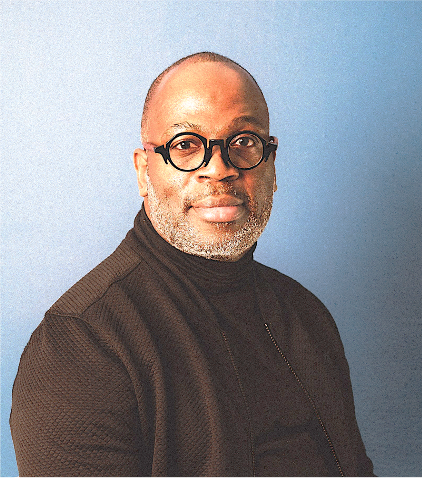Insights
NICHQ Employee Spotlight:
Kenn Harris
June 29, 2022
 Full Name and Title
Full Name and Title
Kenn L. Harris, Executive Project Director and Engagement Lead
Time with NICHQ:
3 years
How has your background/experiences led you to join a national children’s health organization?
I’ve been working with the federal Healthy Start initiative since its inception in 1991. In addition to 30+ years with this national maternal and child health program focusing on infant mortality, I bring decades of community engagement, fatherhood and men’s health expertise. I’m also a past president of the National Healthy Start Association (NHSA), a membership and advocacy organization for the 101 Healthy Start programs across the country and served on the board of directors many years before becoming president. After spending 20 years directing the New Haven Healthy Start program at the Community Foundation for Greater New Haven in Connecticut as the Vice President for Community Engagement and building my portfolio in addressing racism, diversity, equity, and inclusion, it seemed like a great opportunity to come to NICHQ to oversee the Supporting Healthy Start Performance Project.
Today, I can say that what I am most proud of at NICHQ is the tremendous team that I’ve been able to build for the Healthy Start TA & Support Center (TASC). The Healthy Start program means a great deal to me because it has not been just a job for 30+ years, infant mortality and maternal mortality are personal to me. Healthy Start programs are doing incredible work around the country and they deserve a staff that understands and knows how to support their work. The TASC team is reflective of the passion that Healthy Start is known for. And another thing that I am proud of is being part of the Leadership Team here at NICHQ. This organization does important work across the country and being able to support this work in the area of MCH is a gift.
Absolutely. All of the TASC staff work with our colleagues across the organization, especially on the projects side. We’ve shared resources, lessons learned, and participated in program learnings for other projects. SHSPP is the largest NICHQ project and the work of the project has certainly contributed to our larger goals. TASC has also helped to create new ones as we’ve consistently expanded our scope of work by securing additional resources to build our portfolio of work.
What are you most proud of from your time with NICHQ?
As a certified trainer, I’m most proud of any opportunity to lend my expertise around equity, racism and diversity. The opportunity to make contributions outside of Healthy Start really helped me feel welcomed at NICHQ and part of the broader vision. I’m proud of the leadership of the organization and their dedication to have conversations around equity and thinking about what that looks like in our work here. We are on a path towards equity, and I feel like I was a part of that by helping guide NICHQ’s approach towards an equity journey.
A goal for NICHQ is to continue focusing on alignment of all our initiatives to ensure that each initiative has an equity lens and is strengthened to do the deeper work associated with addressing inequities. This will ultimately create an equity practice that helps to demonstrate measurable impact. Having a national initiative as large as Healthy Start has given us the opportunity to demonstrate impact as a result of implementing an equity strategy. Healthy Start does not have the luxury of ignoring the inequities and inequalities in women and infant health outcomes. In fact, that luxury is a “privilege” not afforded to those families and committees Healthy Start serves. So the goal of the SHSPP is to deliver on the commitments we made in this cooperative agreement. We set out to build a premiere technical assistance and support center and I believe we have. As we have entered, the fourth year of this five-year cycle with supplemental support from the MCHB, we are charged up to go deeper than we’ve ever been in our delivery of support to the Healthy Start grantees and to go further than we anticipated by the end of the grant cycle. The MCHB has a goal of achieving infant health equity by 2030. NICHQ’s goal as the Healthy Start TASC is to be instrumental in the achievement of that goal.
We need to push all our initiatives to go beyond just saying that they are looking through an equity lens, and instead be challenged to think about what that means and what the lens looks like. And once you look through it, what are you doing? It’s important to ask questions that push organizations to be accountable in regards to what they are doing around equity. Equity is so easy to talk about, but we want to get to the depth of equity. This involves addressing inequities and what causes them in the first place, which gets us right to racism. I’m looking forward to deeper conversations on our projects at NICHQ as we continue our work towards equity.
